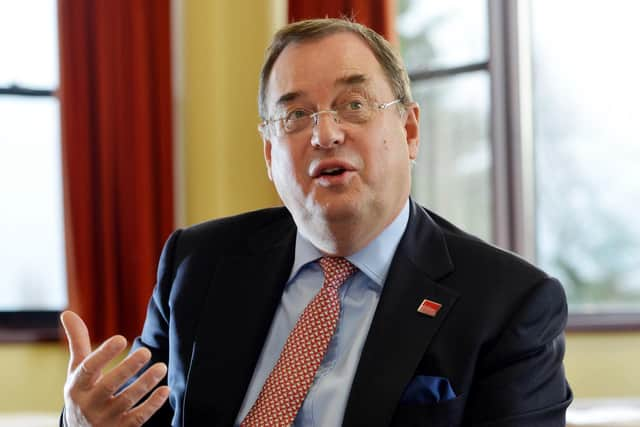Authority to fund HGV and bus courses to deal with driver crisis


Recent months have seen a shortage in both HGV drivers and bus drivers, which has led to services across West Yorkshire being reduced or cancelled.
West Yorkshire Combined Authority, made up of five West Yorkshire Councils, announced its attempts to tackle the crisis by getting more local providers to begin training the next generation of drivers.
Advertisement
Hide AdAdvertisement
Hide AdWith a shortage of HGV drivers due to a mix of Covid 19 and Brexit, haulage companies have offered higher wages to prevent the supply chain grinding to a halt.
But a knock on effect of this has been many bus drivers have left the professions to become HGV drivers – on higher pay.
An announcement from the Combined Authority today said: “The national shortage further exacerbates a local shortage of bus drivers, with drivers tempted into higher paid vacancies. A combination of factors has contributed to the current situation, many are long standing issues that have been compounded by recent events.
“The West Yorkshire Combined Authority has agreed to fund training providers for them to offer HGV and PSV driver courses where the cost of HGV and medical licenses can be fully funded.”
Advertisement
Hide AdAdvertisement
Hide AdLast year the Authority – now a mayoral authority, took on the budget for adult education in West Yorkshire, a £65m pot of cash.
Sir Roger Marsh, chair of the Leeds City Region Enterprise Partnership and NP11 group of Northern local enterprise partnerships and Tracy Brabin, Mayor of West Yorkshire held a roundtable with the Heavy Goods Vehicle (HGV) and Public Service Vehicle (PSV) sectors to better understand the impact on West Yorkshire, vacancy issues, barriers to recruitment and links to training and employment.
Ms Brabin said: “Meeting with the HGV and PSV sectors gave us valuable insight into the cause of the crisis and allowed us to realise what we as a Combined Authority can do to support the crisis in West Yorkshire.
“Through the Adult Education Budget, we aim to give training providers the funding they need to train more HGV and PSV drivers and give them the much-needed licenses to improve the shortage and give many local people employment opportunities.”
Advertisement
Hide AdAdvertisement
Hide AdFeedback confirmed that there are multiple issues which have resulted in the shortage, with the industry focusing on significant wait times for provisional licenses, examinations, and a hiatus in training more examiners.
This was especially the case for PSV employers who reported that that they were not experiencing a significant shortage of people attracted to the role, but that the significant wait times were the main issue. Applicants tend to find other jobs while waiting through this process, which lasts 6-8 weeks rather than the usual 7-10 days.
For HGV drivers, feedback largely focused on the need for national interventions. This included poor facilities across the UK, and European haulage rates that UK firms cannot compete with. This was highlighted as a contributing factor to the shortage of women in the HGV workforce.
Sir Roger Marsh OBE DL, chair of the Leeds City Region Enterprise Partnership and NP11 group of Northern local enterprise partnerships said: “Our economy is bouncing back since the pandemic, however in order to fully recover we must be able to trade goods and get people to and from work. HGV and PSV drivers are crucial in achieving this, which is why it is so important we fund this training.
“I hope by addressing cost barriers we can reduce the shortage in West Yorkshire and attract more people to this vital role.”